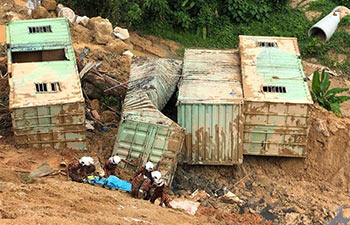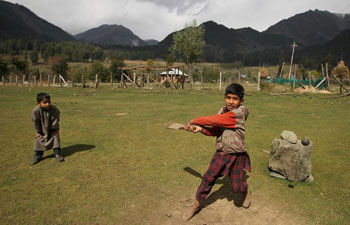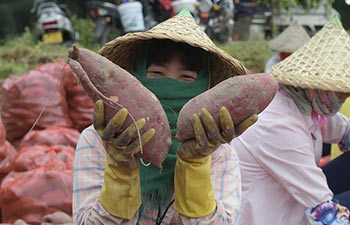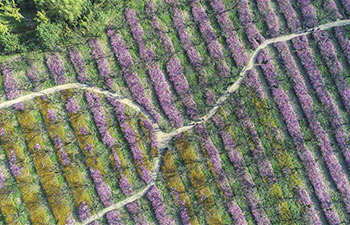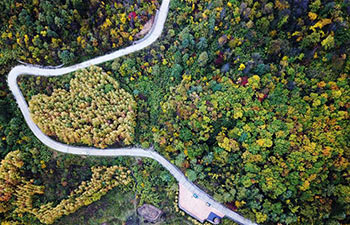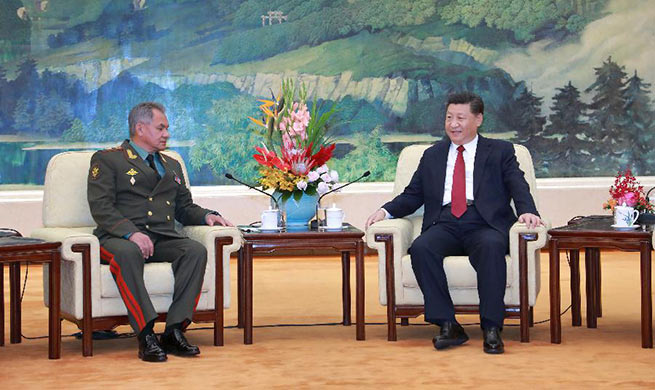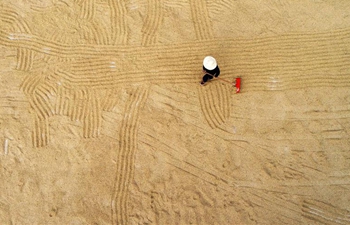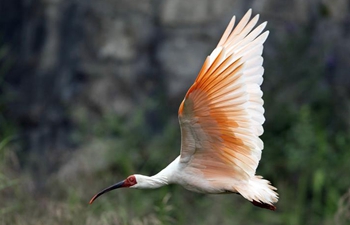NAIROBI, Oct. 19 (Xinhua) -- Kenya's horticultural exports in 2018 is expected to decline as compared to last year due to the ongoing fertilizer shortage, the industry said on Friday.
Jane Ngige, coordinator of Kenya Horticulture Council (KHC), told Xinhua in Nairobi that implementation of new rules for the inspection of fertilizer imports have delayed the critical input from reaching farms.
"Unless measures are taken, we expect flower, vegetables and fruits exports to decline in 2018 due to unavailability of fertilizers for the cash crops," Ngige said.
The East African nation exported horticulture worth some 1.15 billion U.S. dollars in 2017, the bulk of which was cut-flowers.
Ngige said Kenya exported about 159,000 tonnes of flowers in 2017 while fruits and vegetables were approximately 57,000 tonnes and 87,000 tonnes respectively.
In May, Kenya launched a multi-agency taskforce to combat counterfeits goods in the market by re-inspecting all goods at the country's points of entry.
Ngige said that the industry supports the government efforts to prevent imports of fake products but the exercise should be done in a manner that is sensitive to needs of the horticulture sector that depends on imported inputs.
Government data indicates that Kenya consumes approximately 450,000 tonnes of fertilizer annually, the bulk of which is imported.
According to KHC, the sector also faces growing threat of climate change which affects the availability of water throughout the year.
Ngige added the most common flowers exported are roses, while French beans, herbs and capsicums accounted for the bulk of horticultural crops sold overseas.
She noted that the industry is keen to diversify its export markets to reduce overdependence on the European Union consumers.
"We hope that the operationalization of the direct flights between Kenya and the U.S. will boost exports to North America," she said.
She noted that currently most horticulture sales to the U.S. go through the Netherlands flower auction which makes them less competitive. The KHC also hopes to begin horticulture sales to the huge Chinese market.
